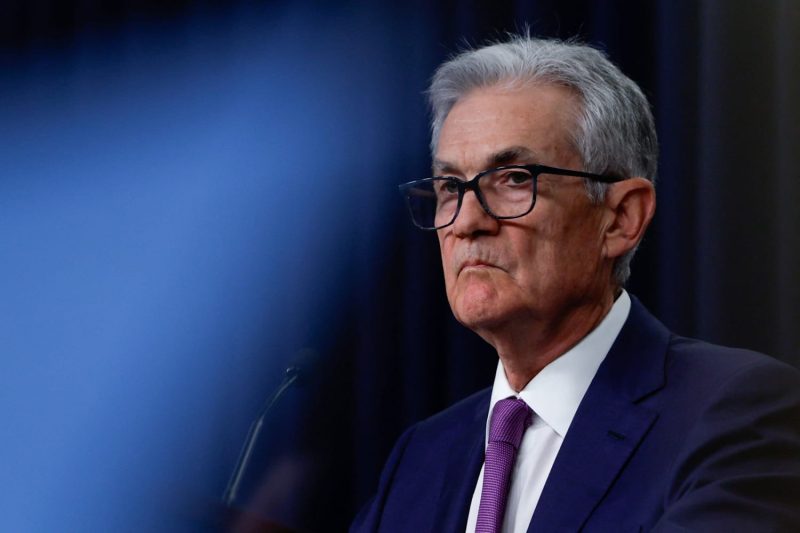Federal Reserve Chair Jerome Powell on Wednesday reiterated that he expects interest rates to start coming down this year, but is not ready yet to say when.
In prepared remarks for congressionally mandated appearances on Capitol Hill Wednesday and Thursday, Powell said policymakers remain attentive to the risks that inflation poses and don’t want to ease up too quickly.
“In considering any adjustments to the target range for the policy rate, we will carefully assess the incoming data, the evolving outlook, and the balance of risks,” he said. “The Committee does not expect that it will be appropriate to reduce the target range until it has gained greater confidence that inflation is moving sustainably toward 2 percent.”
Those remarks were taken verbatim from the Federal Open Market Committee’s statement following its most recent meeting, which concluded Jan. 31.
In total, the speech broke no new ground on monetary policy or the Fed’s economic outlook. However, the comments indicated that officials remain concerned about not losing the progress made against inflation and will make decisions based on incoming data rather than a preset course.
“We believe that our policy rate is likely at its peak for this tightening cycle. If the economy evolves broadly as expected, it will likely be appropriate to begin dialing back policy restraint at some point this year,” Powell said in the comments. “But the economic outlook is uncertain, and ongoing progress toward our 2 percent inflation objective is not assured.”
He noted again that lowering rates too quickly risks losing the battle against inflation and likely having to raise rates further, while waiting too long poses danger to economic growth.
Markets had been widely expecting the Fed to ease up aggressively following 11 interest rate hikes totaling 5.25 percentage points that spanned March 2022 to July 2023.
In recent weeks, though, those expectations have changed following multiple cautionary statements from Fed officials. The January meeting helped cement the Fed’s cautious approach, with the statement explicitly saying rate cuts aren’t coming yet despite the market’s outlook.
As things stand, futures market pricing points to the first cut coming in June, part of four reductions this year totaling a full percentage point. That’s slightly more aggressive than the Fed’s outlook in December for three cuts.
Despite the resistance to move forward on cuts, Powell noted the movement the Fed has made toward its goal of 2% inflation without tipping over the labor market and broader economy.
“The economy has made considerable progress toward these objectives over the past year,” Powell said. He noted that inflation has “eased substantially” as “the risks to achieving our employment and inflation goals have been moving into better balance.”
Inflation as judged by the Fed’s preferred gauge is currently running at a 2.4% annual rate — 2.8% when stripping out food and energy in the core reading that the Fed prefers to focus on. The numbers reflect “a notable slowing from 2022 that was widespread across both goods and services prices.”
“Longer-term inflation expectations appear to have remained well anchored, as reflected by a broad range of surveys of households, businesses, and forecasters, as well as measures from financial markets,” he added.
Powell is likely to face a variety of questions during his two-day visit to Capitol Hill, which starts with an appearance Wednesday before the House Financial Services Committee and concludes Thursday before the Senate Banking Committee.
Though the Fed tries to stay out of politics, the presidential election year poses particular challenges.
Former President Donald Trump, the likely Republican nominee, was a fierce critic of Powell and his colleagues while in office. Some congressional Democrats, led by Sen. Elizabeth Warren of Massachusetts, have called on the Fed to reduce rates as pressure builds on lower-income families to make ends meet.






























